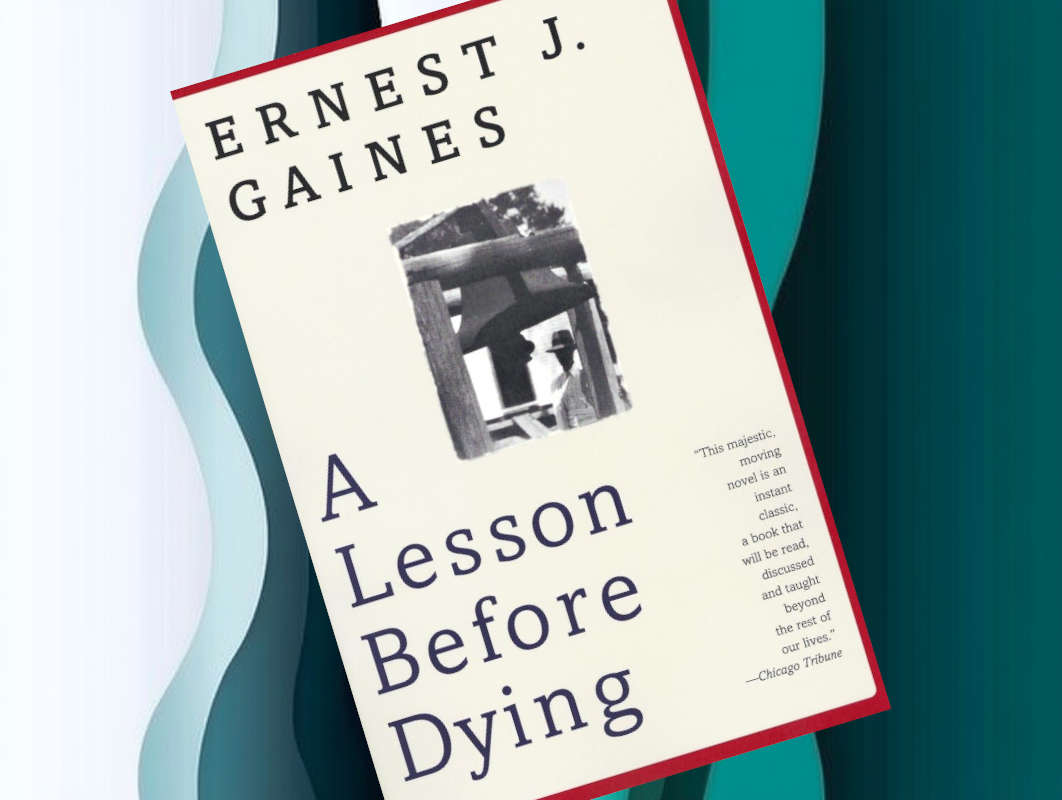
At a time when the whole world seems like it’s going to hell, it’s important to keep one’s spirits up, and I can think of no better way to do so than getting lost for a few days in a bright, uplifting tale of systemic persecution and marginalization of minorities. If you’re like me and look to pile bad thoughts on top of worse ones, “A Lesson Before Dying” by Ernest J. Gaines (#366 on the list of 1,000 Books to Read Before You Die) can be found at your local library.
Like a perverse Fight Club, just go to a librarian and ask her to depress you as hard as she can.
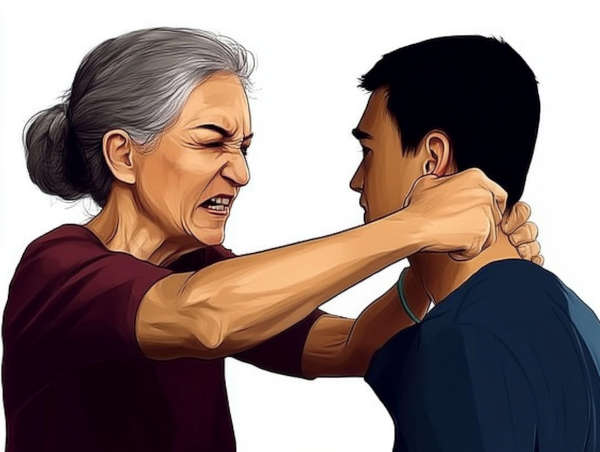
In all seriousness, this book is amazing. While it is well written, the strength of “A Lesson Before Dying” isn’t in its prose as much as it is in the characters. It’s horrible to realize, but each one of them rings true in a way that you wish was impossible.
A black man sent to the electric chair for being in the wrong place at the wrong time? That tracks. A black teacher who hates teaching but can’t find any other work for an educated black man in the South? Yup. A reverend who touts that the true test of being educated is how frequently and well one lies in order to help others? Alright.
You know from the get-go that the book isn’t going to be happy. It doesn’t want to be happy. It waves happiness in your face like a pair of someone else’s panties it found in your glovebox. “These yours?” it asks, to which you can only bluster out some semblance of, “Nuh-uh.”
You go through page upon page knowing that things like this did happen, are happening, and will probably continue to happen.
It’s hard to say why, but this book made me think about death.

There have been a handful of times that I thought I was done for. Not in some philosophical sense of the word, but in the actual, “Welp, I’ve had a good run,” deer-in-the-headlights sense.
One of those times was when I was 24 and I was going into surgery. “I feel like I’m not going to wake up after this,” I said. I was on an operating table and perfectly earnest. Things were bleak — I was vomiting bile and had, for a short time, been convinced I was in hell. I told the doctors, “This is it for me. I’m checking out.”
“Nuh-uh,” said the anesthesiologist.
“You’re paid to say that.”
“And paid well.”
I had the overbearing sense that I needed to do something, to say something. I was knocking at the door of the Kingdom, so to speak, and God was hollering that he’d be there in just a second, damnit, he had a quiche in the oven, and just hold-the-fuck-on, he was coming.
Ultimately, though, what could I say? What could I do? All of these scrubbed-up bastards were waiting on me, and they were busy people. Practical people with automobiles and bank loans and skin-care routines.
So, I counted backwards. I remember making it to 97.
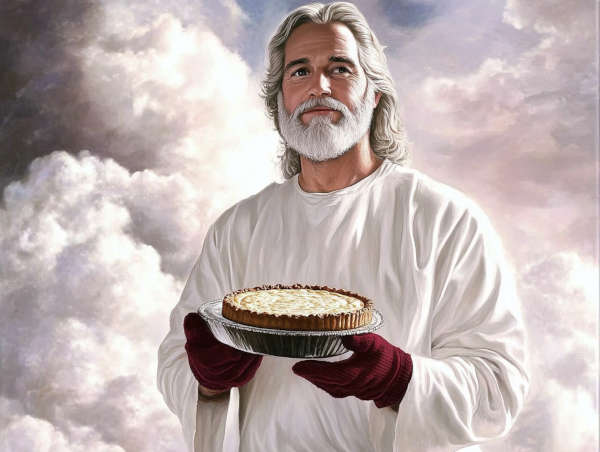
Another time that I felt like I was dying was when I got food poisoning from a bad panini in Bangkok. I wish it had been from eating something cooler, but here we are. That time, death didn’t seem like such a bad thing. That is to say, I had such a high fever that I wasn’t worried about it.
“At least the pool’s nice and cool,” I said to myself, only realizing later that I’d been sweating so much that I was lying in an actual puddle.
Death is only scary if you’re aware enough to be scared. Otherwise it’s a novelty, this little curiosity, a new trend that everyone’s been talking about. Like fidget spinners. Nobody’s afraid of fidget spinners. If anything, we all think they’re sort of neat.
The hostel we were staying at had a pharmacy under it, so I sent Sarah down to get whatever drugs she could get for food poisoning. “Get the good stuff,” I said. “And make sure you tell them about the pool!”
(Thai pharmacies are strange places filled with medicines most Americans have never heard of. Between that and the language barrier, there was a good chance she’d come back with electric heroin or some other fun madness.)
I’m sure Sarah was more freaked out by the whole situation than I was. We’d just gotten engaged, or were about to be, and here I was hallucinating angels doing jackknifes off our room’s air conditioner. “The water’s fine!” I told them.
They knew already. Angels always do.
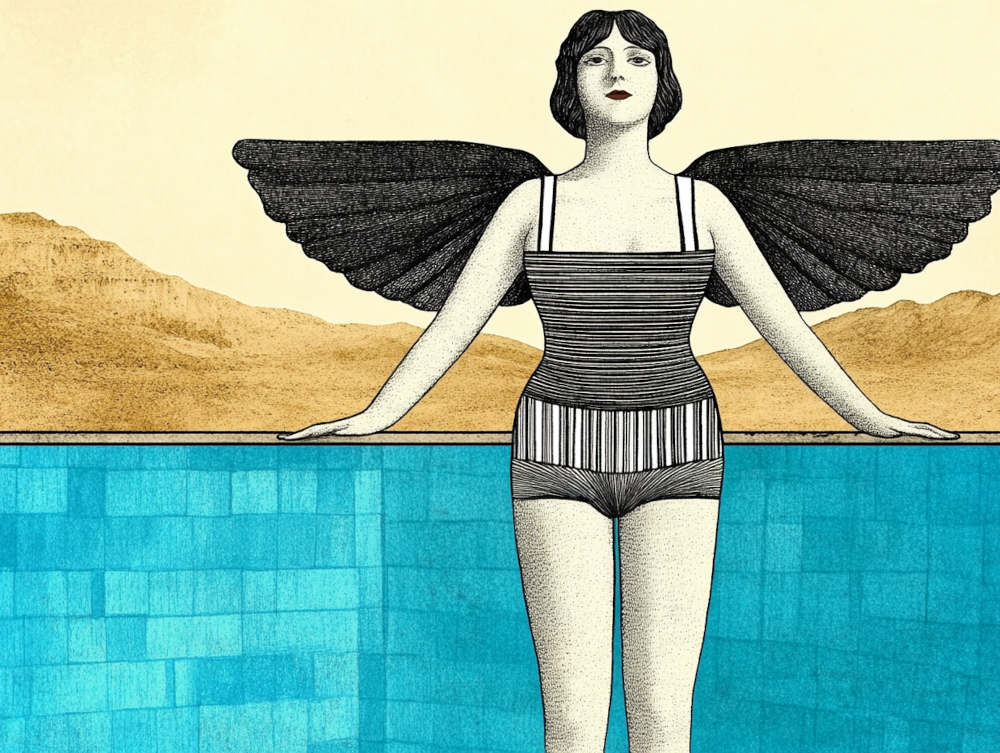
In “A Lesson Before Dying,” Jefferson — the character who is sentenced to death for no good reason — is continually asked to do things for other people. Talk, eat, find Jesus. His perspective is that there’s not much point in doing any of those things. Those are people things, and Jefferson is no longer a person; he’s an animal on the way to slaughter.
He’s been taken over by pessimism, which is easy to understand when you’re on death row. But his godmother, Miss Emma, wants Jefferson to face his end as a man. As if it matters how a man falls down!
“When the fall is all there is, it matters.” (That’s from The Lion in Winter.)
Like any good English major, immediately after reading the title of this book, I said to myself, ‘Who’s going to be the one learning a lesson? I bet it’s the narrator.” Narrators always go around learning things, and in this story, Grant, who is educated enough to be depressed about how dire everything is in the South, has a lot to learn.
There are a couple of ways, though, that you could construe the lesson. None of them are particularly upbeat, and the way I do interpret it isn’t the same as the way you will.
For me, the lesson is that your death isn’t about you. There’s something greater to be served in your final moments. Call it nobility or heroism or essential humanity, your death (and your life, I suppose) can be in service to others. You can show those around you that it’s possible to meet eternity on your own two feet.
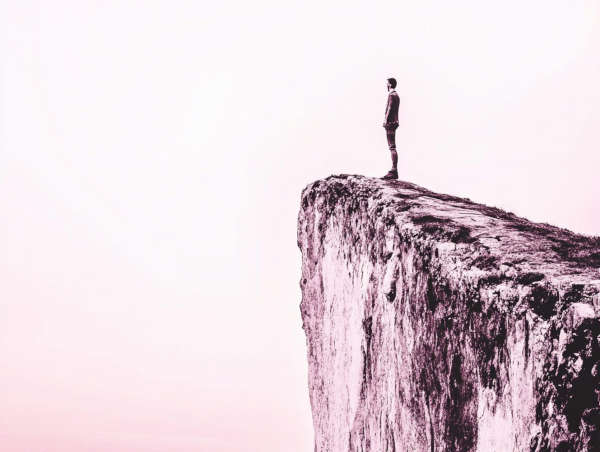
It provides and reinforces a sense of hope, which is a feeling that’s in short supply these days, and there’s a good chance that the hope you feel is entirely misplaced. Can death ever be truly noble? I suppose that’s up to you and your own faith.
It’s probably happier to think it’s possible, that there are angels up in heaven scoring perfect 10s even from the East German judges.
Does Ernest J. Gaines think so? Beats me.
The book ends with an endless, lingering feeling of fear, doubt, uncertainty. The feeling you get when you are suffering and you don’t know when it’s going to end. An on-the-floor feeling, when very often a single image will appear to you. A mundane image given new weight by your mind’s willingness to accept its significance.
The swirls in the carpet, an insect on a hill, the particular dance of an auburn leaf moments before freefall. Your whole body turns into a telescope that brings the image into sharp relief, and you suddenly don’t know why you’re looking, why you care. But you know that the image will stick to you, like a painting glued to the inside of your skull. Perhaps it’ll haunt you forever.
Perhaps you’ve seen it already.